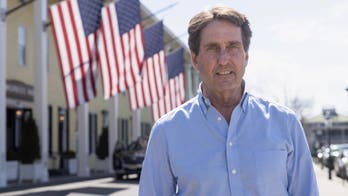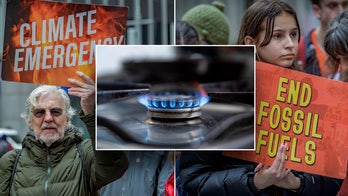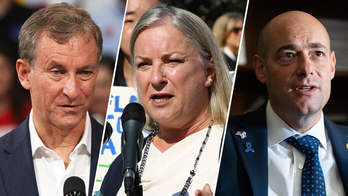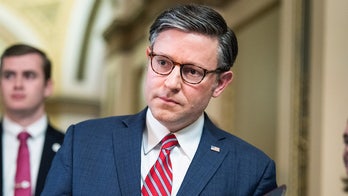Republican presidential candidate Jeb Bush ventured into historically Democratic territory on Friday to tell a predominantly-African American audience that the country's decades-long efforts to fight poverty are failing--and his record as Florida governor serves as a blueprint of his future presidency.
Bush is one of two Republican presidential candidates who accepted an invitation to address the annual conference of the National Urban League, one of the nation's largest civil rights organizations. Organizers said other Republicans were invited, but they declined, mostly citing scheduling conflicts.
"For a half century, this nation has pursued a `war on poverty' and massive government programs, funded with trillions of taxpayer dollars," Bush planned to say, according to prepared remarks released before his speech. "This decades-long effort, while well intentioned, has been a losing one.
"So many people could do so much better in life if we could come together and get even a few big things right in government," Bush was to say. "I acted on that belief as governor of Florida. It's a record I'll gladly compare with anyone else in the field."
Also due to speak at the meeting Friday in Fort Lauderdale were Republican candidate Ben Carson, as well as Democratic candidates Hillary Rodham Clinton, former Maryland Gov. Martin O'Malley and Vermont Sen. Bernie Sanders. The conference marks the first time in the 2016 presidential race that Clinton and Bush are set to appear at the same event.
Within moments of taking the stage, Clinton reminded the crowd of the federal government's poor response to Hurricane Katrina a decade ago, lamented the deaths of Trayvon Martin and Sandra Bland, and ticked off statistics on African Americans receiving disproportionately longer sentences. African-Americans are three times more likely to be denied a mortgage loan than people who are white, she said.
"Race still plays a significant role in determining who gets ahead in America and who gets left behind," Clinton said. "And yes, while that's partly a legacy of discrimination that stretches back to the start of our nation, it is also because of discrimination that is still ongoing."
Clinton told the audience she has fought to tear down those barriers since her first job out of law school, with the Children's Defense Fund. She said she fought for children's health insurance as first lady and spoke out on issues of economic equality for women.
"I'm planning to be president, and anybody who seeks that office has a responsibility to say it, and more than that, to grapple with the systemic inequities," she said. "I want you to know I see it and I hear you, and the racial disparities you work hard every day to overcome go against everything I believe in and everything I want to help America achieve."
Bush planned to tell the crowd that as governor in Florida from 1999 to 2007, he ordered the removal of the Confederate battle flag from the state capitol, raised the number of black judges and tripled the state's hiring of minority-owned businesses.
"From my first day as governor until the last, respect was the rule, and opportunity for all was the goal," he said.
Bush also planned to boast of his work to improve Florida's schools, saying that "social progress is always the story of widening the circle of opportunity."
"I gave the challenge of school reform everything I had as governor," he was to say. "I believe in the right to rise in this country. And a child is not rising if he's not reading."
Bush's time in office is not remembered as fondly by some Democrats in the state. State Sen. Arthenia Joyner, the Democratic leader in the state Senate, said Bush denied thousands of African Americans the right to vote by purging state's voter rolls. Joyner said Bush kept felons from restoring their voting rights and cut early voting hours as governor.
"If you are indeed sincere about being inclusive, then you need to first acknowledge your mistakes and unequivocally apologize directly the community you wronged," she wrote this week in a letter to Bush.
But Bush will also have some fans in the audience on Friday, including T. Willard Fair, president of the Urban League of Greater Miami. He started a charter school with Bush in one of Miami's poorest communities in the 1990s, praised him as "a different" Republican in an op-ed published Thursday in the Orlando Sentinel.
"I write this because I fear that many who look like me will do as I used to do before I met Jeb Bush -- assume that if a candidate is Republican, they can't be for me," he wrote. I'm writing today to tell you: `Not this Republican.' This Republican is different."




